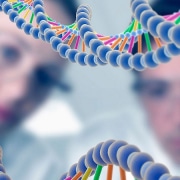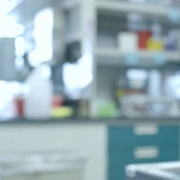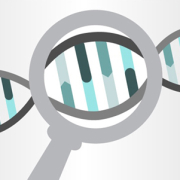Experts through experience: Jo’s story
As part of this year’s #GenomicsConversation, patient advocate Jo shares her breast cancer journey, which began before the NHS Genomic Medicine Service was set up
Jo Taylor is the founder of After Breast Cancer Diagnosis (ABCD) and METUPUK, which advocates for patients with metastatic breast cancers. A cancer patient herself, she has never had genomic testing because she was first diagnosed before the launch of the 100,000 Genomes Project, and therefore before the inception of the NHS Genomic Medicine Service.
Tell us about your diagnostic journey
Around 16 years ago, when I was 38 and on maternity leave, I was diagnosed with primary breast cancer. My baby was only five months old, and my son was nearly two and a half. So that, in itself, was hard enough. I went straight from maternity into menopause and went through five years of surgery, chemotherapy, radiotherapy and hormone blockers. I missed out on so much as a young person and a young mum.
Seven years after my initial diagnosis, I metastasised. I knew the risks of recurrence, but it was by pure chance that I found a lump in my neck after a Twitter friend messaged me and said that she had found one in hers. I’d been having six-month rolling appointments with an oncology team and a surgeon, and they’d always check my clavicle, armpit and breasts. So they’d either missed something in my neck or just couldn’t feel it at the time.
I was with secondary, metastatic breast cancer and was told, “It’s an incurable disease. Yes, we can treat it, but it’s incurable.”
I’ve had various treatments, including radiotherapy, and about 14 surgeries, which have helped me with living well and have extended my survival on first-line treatment for nine years now.
How do you think genomics could benefit patients with metastatic disease?
A few years after my secondary diagnosis I founded METUPUK, a patient advocacy charity that raises awareness and campaigns for things like drug access and clinical trial information.
Approximately 30% of breast cancer patients will go on to develop metastatic breast cancer, and the risk can last for up to 20 years – but we don’t know who those people will be. That made me think that genomics could be used in a real and more impactful way across the pathway, not just for early-stage cancer patients.
Patients with metastatic disease feel that we’re missing out on possible options, that there might be different or more effective treatments available. I’m not saying it’s a complete scattergun approach at the moment, but we can’t call it personalised care until it is properly personalised.
In metastatic breast cancer, mutations can happen every time the cancer progresses. Ideally, genomic testing would be offered with every new progression to identify any new mutations and to make sure that patients can access any new clinical trials that might be relevant. We know that cancer mutates, so we know that the need for genomic testing is there.
How would you like to see genomics integrated into treatment pathways?
Genomics has great potential to help patients, but genomic testing is not currently part of the standard treatment pathway for metastatic cancer – the focus is much more on NICE-approved drugs. We need to start including surgeries and radiotherapy options for metastatic patients in treatment pathways – and at the forefront is a need for data and the integration of genomics.
When you have metastatic cancer, you have treatments every three or four weeks, and every three months you have scans to see what’s happening: is the cancer stable? Is it progressing? This process should really be smarter: it should include things like circulating tumour DNA blood biopsies and genomic testing.









